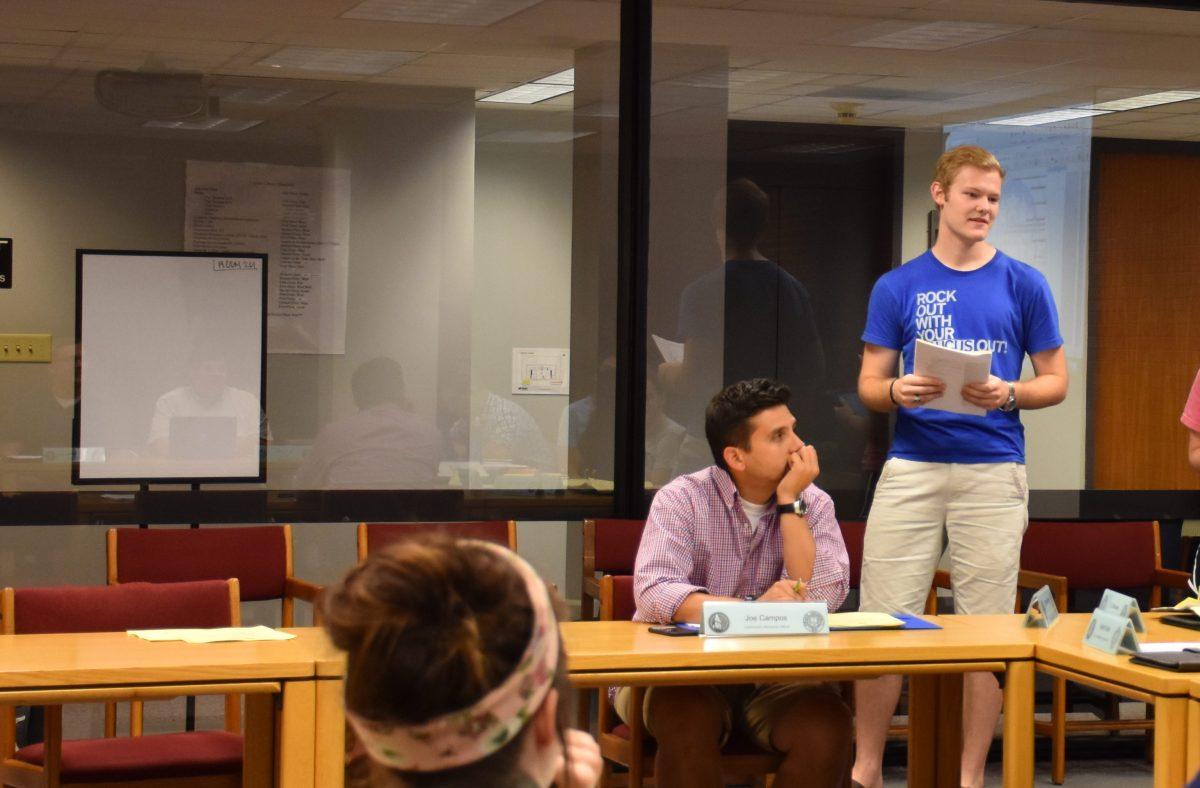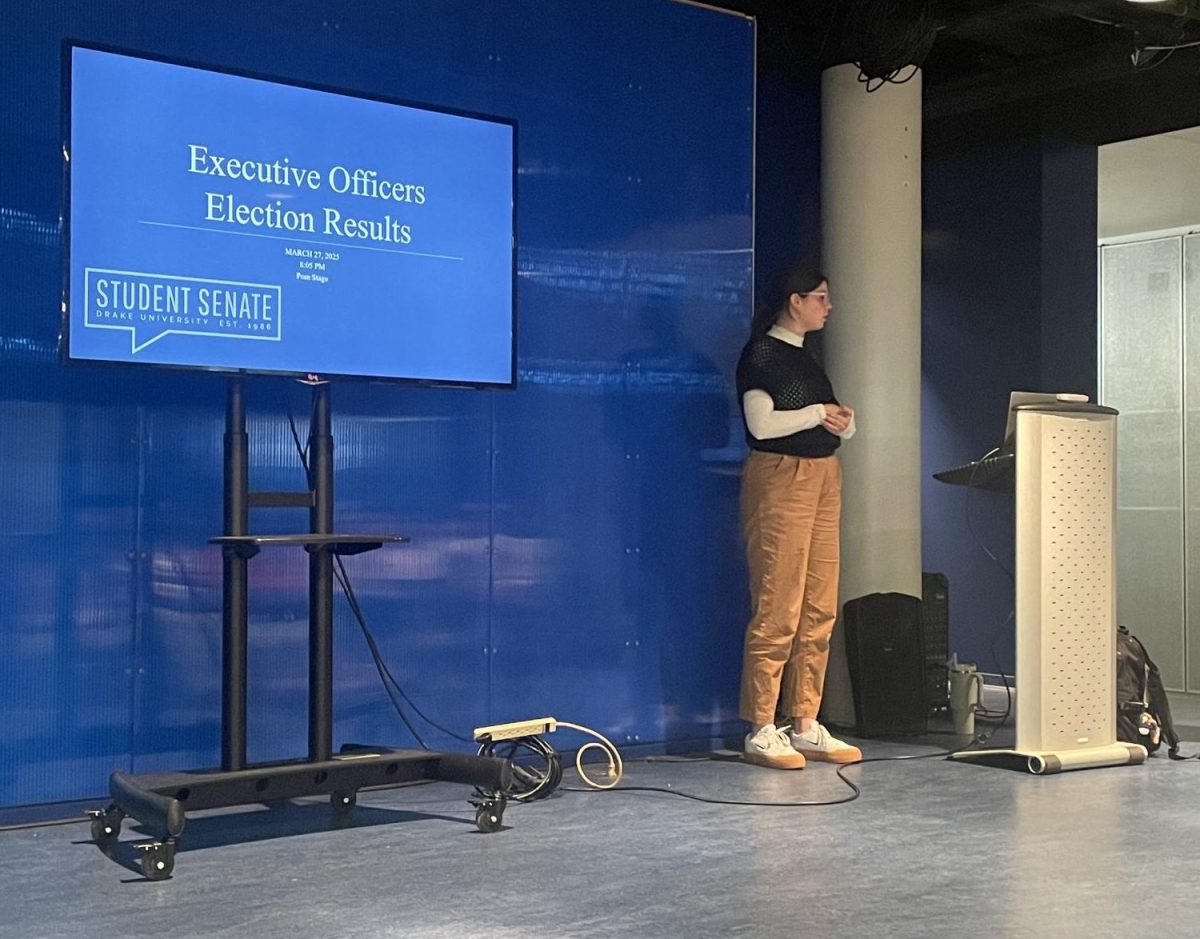BY JAKE BULLINGTON
In its 31 year history, Student Senate has always had separate general and executive elections. A proposal was brought to Senate to combine the two elections into one, but that proposal was rejected.
Heads of the Election Commission, Josh Hughes and Erin Griffin, brought this proposal to the table this past Thursday. The proposal called for conducting all of the elections at once and shifted the timeline of campaigning to a less-than-14 day process.
The proposal reads that the “Election Commission believes this change will lead to a(n) easier and more substantive campaign cycle.”
Hughes and Griffin believed that moving from a bifurcated election to a unified one would help improve overall voter turnout and prevent students from becoming “burned out” from weeks of campaigning.
“(This) is a significant departure from what we’ve done in the past,” Hughes said.
This sparked immediate concern from most senators.
“My big concern with switching to this calendar is that people who run for (executive) positions wouldn’t then be able to run for at-large positions if they were to lose their election…” said Sen. Grace Rogers.
Several other senators voiced similar concerns about not being able to run for a lower-level position if someone were to lose an executive election.
“That’s one of the unintended consequences of moving to the unitary election,” Hughes said. “I guess the reasoning behind that and the rationale is that we feel this is a better change for everyone involved in the Drake community. We feel that there are still a lot of ways to get involved in senate without necessarily being a senator.”
Another concern brought to the debate was from Treasurer JD Stehwien. In regards to the potential change, Stehwien cited dropping numbers in sign-ups in campus leadership positions, like orientation leaders and resident assistants, as reason to be concerned about how this unitary election would affect students’ willingness to run for senate.
“With the numbers already down for on-campus involvement this year, how do you think this is going to impact … having one chance to sign up?” Stehwien said.
Griffin said that many people consider running for senate. Last year, there were more candidates than senate positions.
“I think our goal here is to find people who are really devoted to senate and really want to run for it,” Griffin said. “Hopefully the numbers won’t be low, and if they are we’ll go from there.”
Hughes and Griffin also emphasized the commission’s plan to heavily emphasize social media tools to inform students about the elections as well as candidates’ platforms.
This proposal follows a motion from last semester, where the Election Commission’s bylaws were updated. That was approved because senate felt it would improve the election process.
This new proposal, however, was voted down by a large margin. Fifteen senators, including Stehwien and Rogers, voted against it. Only two senators, AJ Treiber and Joe Herba, voted in favor of the motion. Three senators abstained, including two who were present, Alex Maciejewski and Elizabeth Fisher. Neither gave a reason for why they abstained.
In addition to the failed election proposal, Griffin and Hughes offered a potential change to the election rules, clarifying the rules surrounding the use of Snapchat.
Candidates now cannot send mass Snapchats while campaigning, but can utilize the story feature to promote their candidacy. This motion is likely to pass but was tabled until this week’s upcoming meeting since it is a change in bylaws.










